'Only complete' 1,700-year-old Roman egg at Aylesbury dig
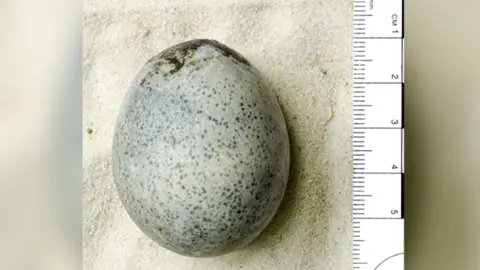 Oxford Archaeology
Oxford ArchaeologyThe only complete chicken's egg from Roman Britain is a "genuinely unique discovery", according to an expert.
It was one of four hen's eggs found during a dig in Aylesbury, Buckinghamshire, although three broke releasing a "potent stench".
The "remarkable collection" of other organic finds included leather shoes, wooden tools and a "very rare" basket.
Archaeologist Edward Biddulph said the extent and range of discoveries "was more than could be foreseen".
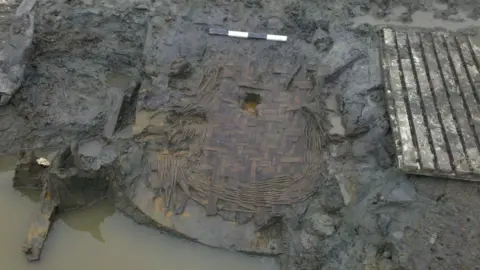 Oxford Archaeology
Oxford Archaeology Oxford Archaeologist
Oxford ArchaeologistMr Biddulph, senior project manager with Oxford Archaeology South, said the "standout discoveries" were found in a pit.
From the late Third Century, people threw objects into it for good luck "much like a wishing well", he said.
Mr Biddulph said: "The pit was still waterlogged and this has preserved a remarkable collection of organic objects.
"Most extraordinary of all was a basketry tray, made of woven oak bands and willow rods, and four chickens' eggs."
The eggs were so fragile, three broke releasing a "potent stench of rotten egg", he said.
 Oxford Archaeology
Oxford Archaeology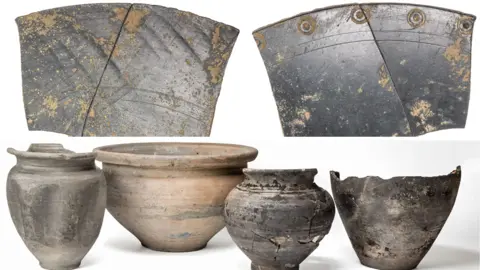 Oxford Archaeology
Oxford Archaeology Eggs were associated with fertility, rebirth and the Roman gods Mithras and Mercury.
Eggshell fragments have been found before, usually in Roman graves, but this is the "only complete Roman egg known in Britain" and "a genuinely unique discovery", Mr Biddulph said.
He believes the eggs and bread basket could have been food offerings cast into the pit as part of a religious ceremony during a funeral procession.
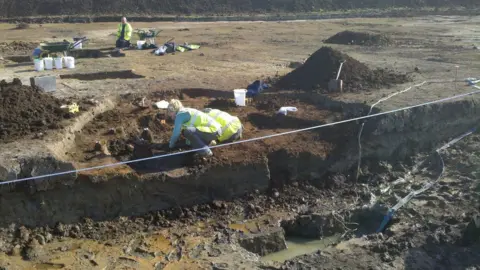 Oxford Archaeology
Oxford Archaeology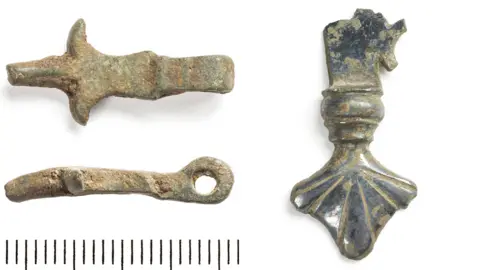 Oxford Archaeology
Oxford Archaeology Pre-Roman finds were also discovered, but the site reverted to agriculture after the late 4th Century.
The dig took place between 2007 and 2016, ahead of the development of the Berryfields site, a mix of housing and community facilities.
It borders the Roman road of Akeman Street, under the A41, next to the Roman town at Fleet Marston.
The full results of the dig are being revealed after three years of analysis.
